The bond between mother and child is something very special. It goes far beyond the crass commercialism of Mother’s Day, and just one day of the year.
For most of us, it is an unconditional, unbreakable bond, and I guess you have to be a mum to fully appreciate it.
But it is not unique to the human species and I have learned through experience that it can be just as strong in the wildlife kingdom.
Some years ago, I heard a commotion in a tree in our front yard and found a young crested hawk or Pacific Baza low down in the branches, calling frantically to its mother who was hovering nearby.
The young male bird had one wing hanging low on its side and it was obvious it couldn’t fly so I wrapped a towel around my hand for protection from its sharp beak and grabbed it. I expected it would be panicking, trying to bite me through the towel and claw me with its curved talons, but amazingly it didn’t then and it never did in the months which followed.
So began my long acquaintance with ‘Bobby’ (whom I named after another famous political Hawke of silver plumage) and his mother.
It’s the sort of thing I’ve been doing all my life, bringing home injured wildlife as a kid and earning the nickname ‘Jungle Boy’ from my siblings.
However, my relationship with Bobby and his mum came to be very special and unforgettable. After I discovered the injured bird, his mother landed in a tree close by and watched anxiously with penetrating amber eyes as I dropped the towel and cradled her offspring in my bare hands, stroking his feathers to calm him and examining the drooping wing. It was swollen and red from an infected cut on the underside.
Fortunately, a vet confirmed there was no break in the wing, and he seemed to sense my genuine concern and relief at that good news.
‘Do you want me to hand the young hawk over to a registered wildlife carer? That’s the recommended official procedure.’
I had seen the concern in the mother’s eyes and I did not want them separated.
‘No, that’s okay, I’d like to take care of him back in his own territory.’
So I took the injured bird back home, along with some antibiotic dusting powder the understanding vet gave me.
He took up residence on a branch I rigged up in our sunroom, looking out over the bushland, keeping watch for his mother who never strayed far from our home. She returned at regular intervals throughout the day and we established a ritual that would be maintained over the next few months.
Bobby would hear her first and answer in an excited high-pitched call, with much wing flapping. Then, with the hawk perched on my arm or shoulder, we would venture out to the backyard. Mother hawk would be waiting in a tree with a juicy stick insect or grasshopper, which he would hungrily swallow. She showed no fear at my approach and her soul-piercing eye contact seemed to acknowledge that my wife Cathy and I were sharing in the task of caring for her injured son.
But one quick trip to town leaving Bobby waiting for his mum outside on a winter’s day, almost ended in tragedy. We returned to find him floating limp and bedraggled in our swimming pool. I fished him out of the cold water and wrapped him in a towel.
‘Cathy, quick, bring us your hair dryer,’ I called out. Once it was plugged in, the warm air dried his feathers, Bobby’s blood started pumping again and he was soon up and looking for his next meal.
We always tried to supplement his Mum’s catch of the day with our fossicking for grubs and grasshoppers in the garden. As a keen fisherman, I discovered the young hawk was also very partial to the raw prawns, so that day he was allowed this special treat. He must have had quite a story to relate to mother when she landed on the branch beside him.
‘Mum, you’d never guess what happened today when I tried to fly…’
Bobby became so much part of the family that when we made the road trip to visit my parents in Bundaberg a couple of hours away, he accompanied us, happily perched on the back seat. He even spent a few hours at the beach with me, resting on my arm or shoulder and attracting amused attention from anyone who passed by. Nothing seemed too unusual in this new-found bond with the humans in his life.
But as his wing healed, he grew stronger and bigger, so his mother started some flying lessons in our yard. Then one day, calling encouragement, she flew off out over the bush gums behind our house.
Bobby answered, flapped his wings, then took off and followed her. It was a strange feeling of sadness and elation as we watched them disappear.
But that was not the end of the story… During his time with us, Bobby’s mortal enemies were the kookaburras. I think they may have caused his original injury, and a few days later I heard a great raucous cackling over in the gums.
I found Bobby down on the ground with a pack of kookaburras diving and pecking at him, so I waded in, rescued him, and took him back home once more.
Fortunately, he wasn’t injured this time and again his mother returned each day for about a week until finally, they took off together again for the bush.
We saw several hawks circling high overhead after that and we were sure Bobby and his mum were among them. Then one day they both paid us a visit, landing on their familiar perch in our backyard and calling out as if to say thanks and goodbye.
A couple of months later we moved to the beach and rented out our home on the outskirts of Gladstone. I thought that was the end of the story. But several years later I went back to do some maintenance work before putting the house up for sale.
I was cleaning the pool when suddenly a magnificent fully-grown male crested hawk swooped down out of the sky and landed on the fence beside me. His bright golden eyes were fixed on mine.
‘Hello Bobby, it’s good to see you again.’ The lump in my throat made it difficult to speak. He watched me for some time before flying off and catching a thermal, which carried him circling high into the clear blue sky.
And that really was the last time I saw him. What was bushland then is now an expanded housing estate in a rapidly-developed city. In my mind, the hawks have simply relocated further from town and Bobby has provided his doting mum with lots of little grand-chicks in the skies over those rolling brown hills…
But there’s another sentimental, very personal story about birds and mothers I haven’t told anyone outside close family.
It again illustrates how wrong some people are when they refer to ‘dumb animals’ or ‘bird brains.’ They have many abilities beyond our own understanding and can enhance our lives in so many ways.
Every pet owner knows the empathy and unspoken understanding of emotions that exist between them and their pets, especially dogs, which to me often seem more human than many individuals who belong to our species.
I’ve also experienced it from other wild birds besides the two hawks which shared that unforgettable relationship, this time involving a pair of beautiful king parrots. I’d seen these regal, red, and green members of the parrot clan visit our home a couple of times before, but they were always shy and flighty.
The much smaller rainbow lorikeets thought our house and trees were their house and trees, and the bird feeder was also theirs exclusively.
So the king parrots were only occasional and fleeting visitors – until the day my own Mum died suddenly in Bundaberg, a few hours away.
I received the news when I was at work and naturally, I was very upset as I hadn’t seen her for some weeks. I drove home feeling an awful emptiness at not having had the chance to say goodbye. Mum had been rushed to hospital by ambulance after a heart attack, but was unable to be revived.
I sat at the bottom of the back steps, berating myself for not being a better son and more frequent visitor, when my faithful old blue heeler cross, Floyd, nuzzled my neck, licked my face, and placed his head in my lap. That helped, but the tears still ran down my face.
Then something amazing happened. The shy king parrots suddenly flew into the tree beside the steps and started calling quietly to me.
They dropped down to a lower branch right beside us, chirping quietly, craning their necks closer, and making eye contact. The female bird with her brilliant green and red plumage was almost close enough to touch. It was as if they could read my mind, sensing the grief, and suddenly the world did not seem such a sad, bad place.
Call it a coincidence if you like, but I had my interpretation. It was a sign my mother didn’t want me to feel too upset, she was at peace in a better place, at one with the world, the universe, and these beautiful birds.
It reminded me of the wonderful poem attributed to Mary Elizabeth Frye, particularly these lines:
‘…I am in the graceful rush
Of beautiful birds in circling flight,
I am the starshine of the night.
I am in the flowers that bloom,
I am in a quiet room.
I am in the birds that sing,
I am in each lovely thing.
Do not stand at my grave and cry,
I am not there. I do not die.’
My old Dad took great pleasure from this story and I’m sure he had his own similar interpretation. A couple of years later when he sensed his own time was near, he often asked me about ‘Mum’s birds’ and whether they were visiting me again.
But they never did repeat their healing message of love and hope.
(An excerpt from Noosa author John Mikkelsen’s Amazon Books memoir, Don’t Call Me Nev.)
Got something to add? Join the discussion and comment below.
Get 10 issues for just $10
Subscribe to The Spectator Australia today for the next 10 magazine issues, plus full online access, for just $10.

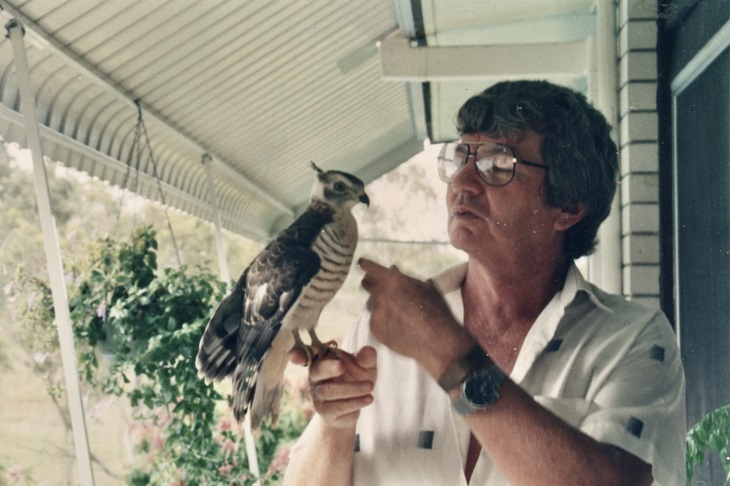

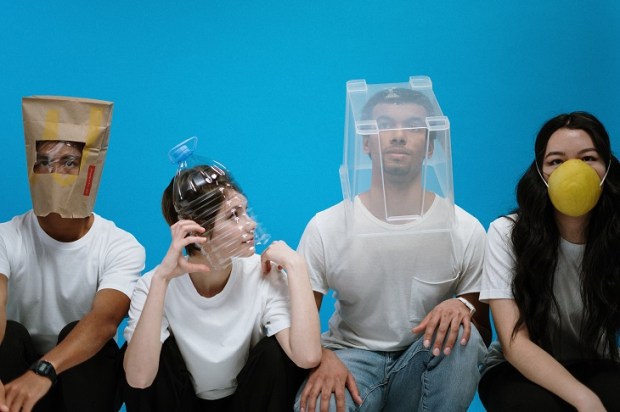
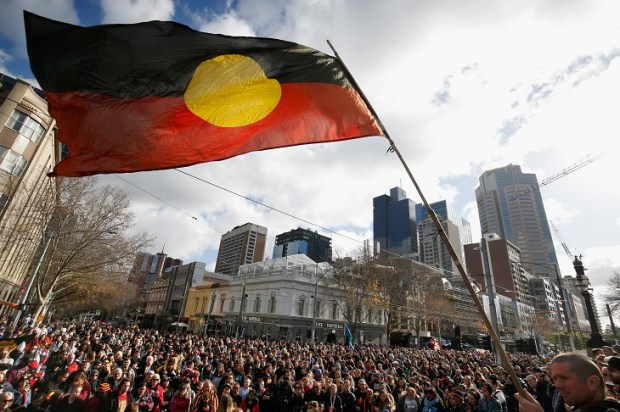
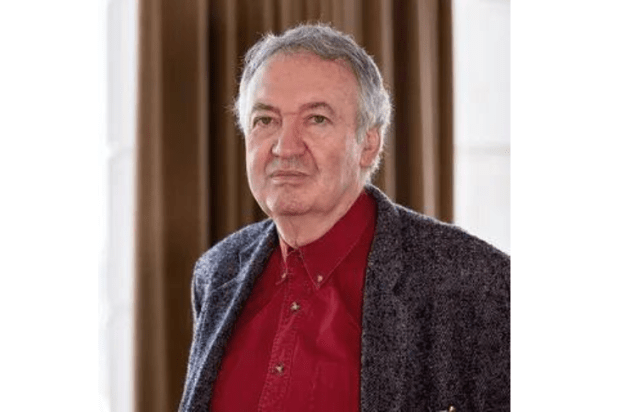
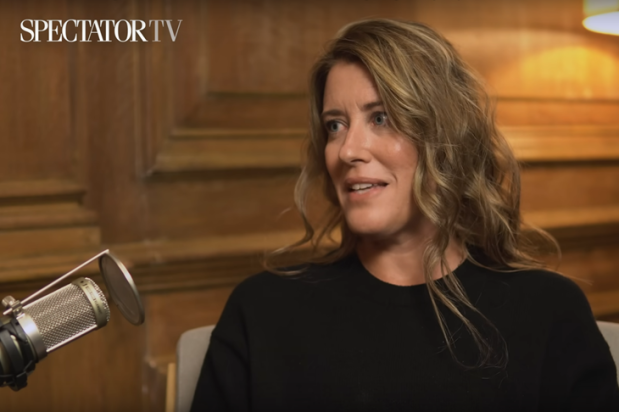
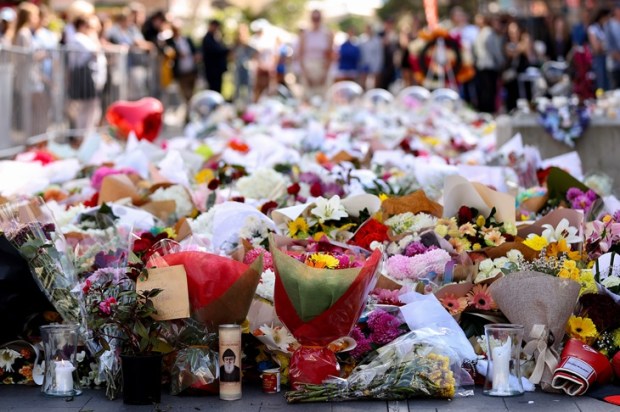


















Comments
Don't miss out
Join the conversation with other Spectator Australia readers. Subscribe to leave a comment.
SUBSCRIBEAlready a subscriber? Log in